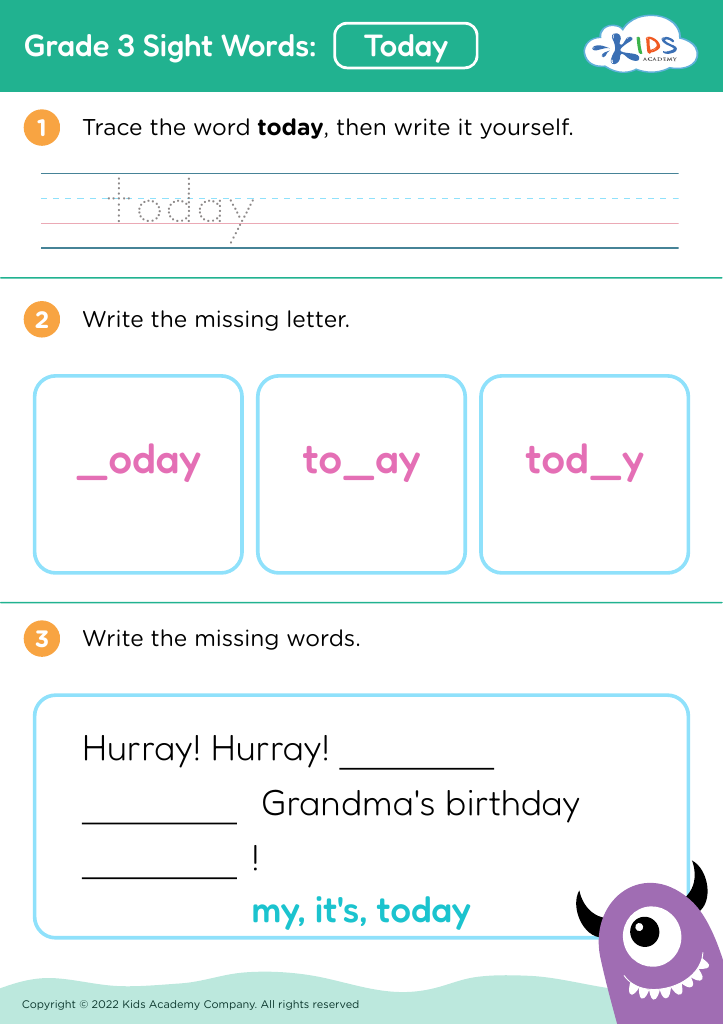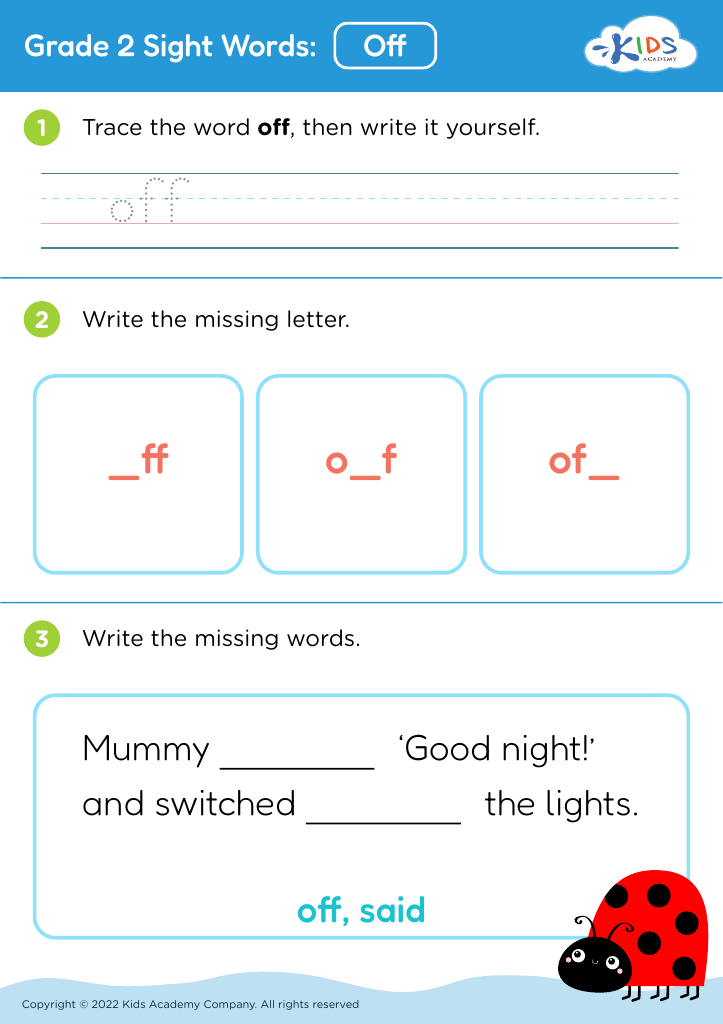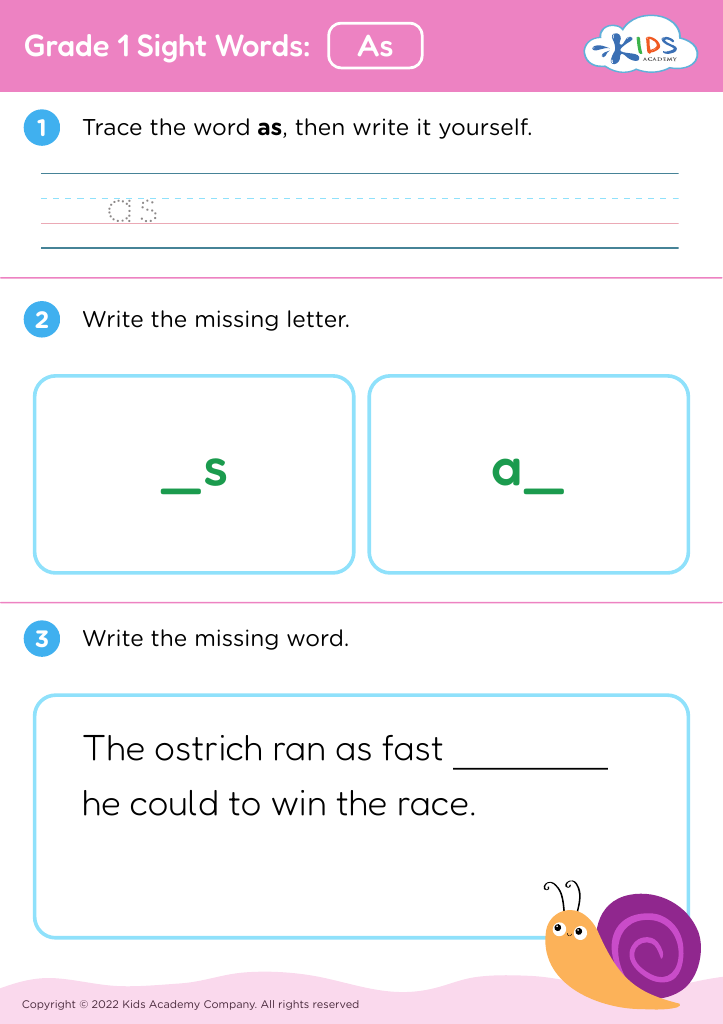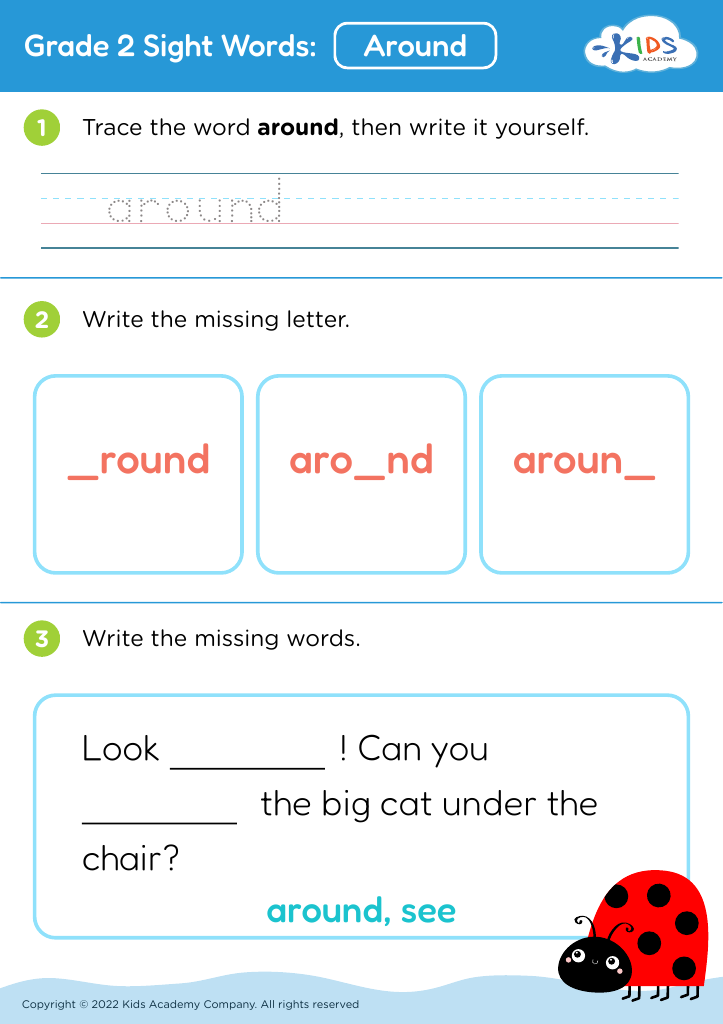Critical Thinking Building Vocabulary Worksheets for Ages 7-8
10 filtered results
-
From - To
Enhance your child's vocabulary and critical thinking skills with our engaging, age-appropriate worksheets designed for children aged 7-8. These worksheets challenge young learners to think deeply as they build their word bank through fun activities like word puzzles, matching games, and creatively structured exercises. Each worksheet is crafted to promote analytical thinking, helping kids make connections between words, meanings, and contexts. By integrating critical thinking into vocabulary lessons, our resources support holistic learning and foster a love for language. Perfect for educators and parents alike, these worksheets are a fantastic tool to nurture your child's cognitive and linguistic development.
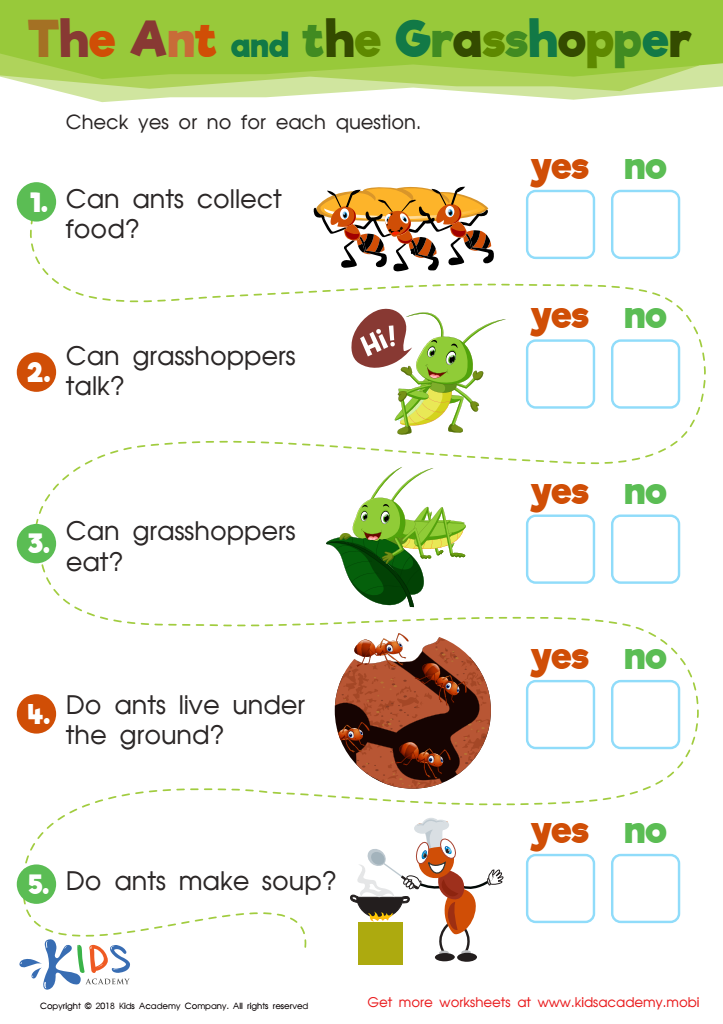

The Ant and The Grasshopper Worksheet
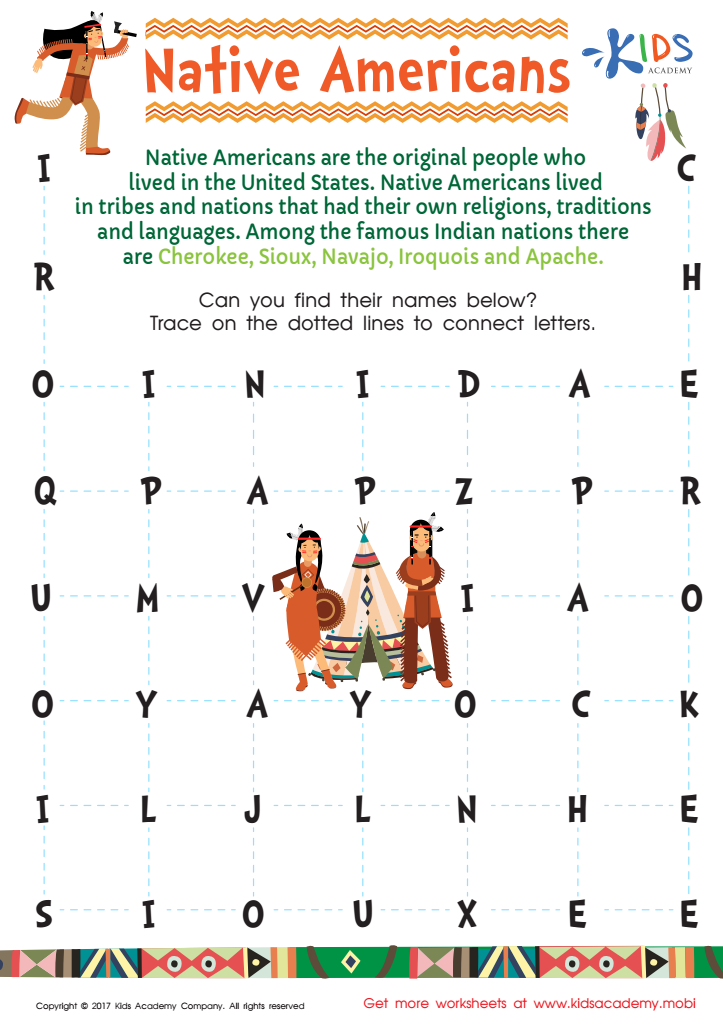

Native American Word Search Printable
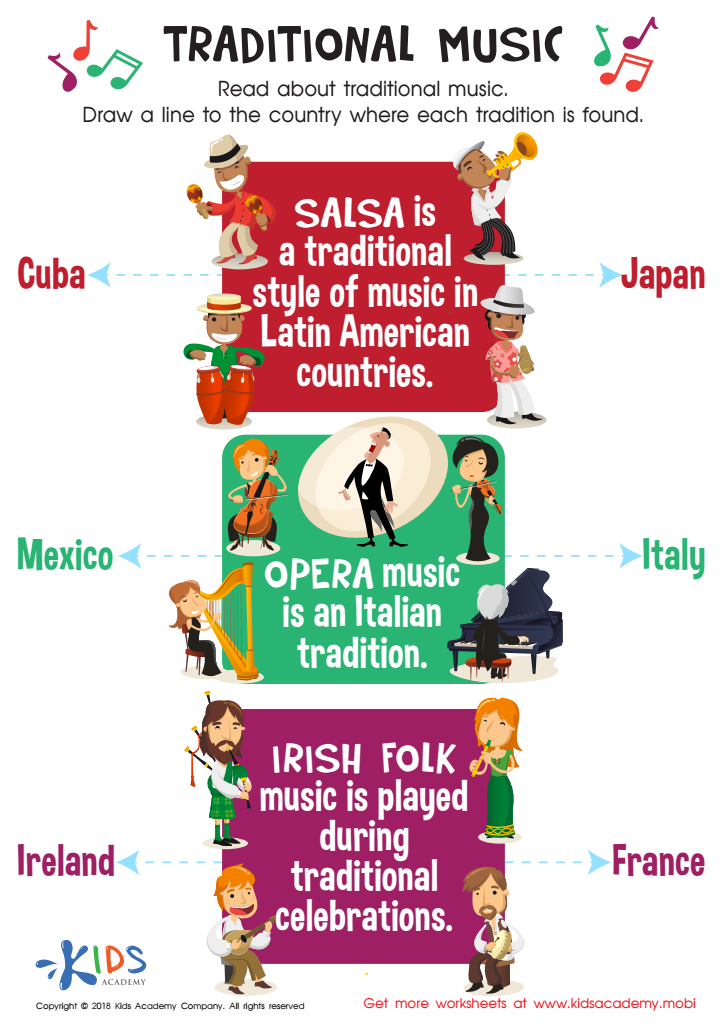

Traditional Music Worksheet
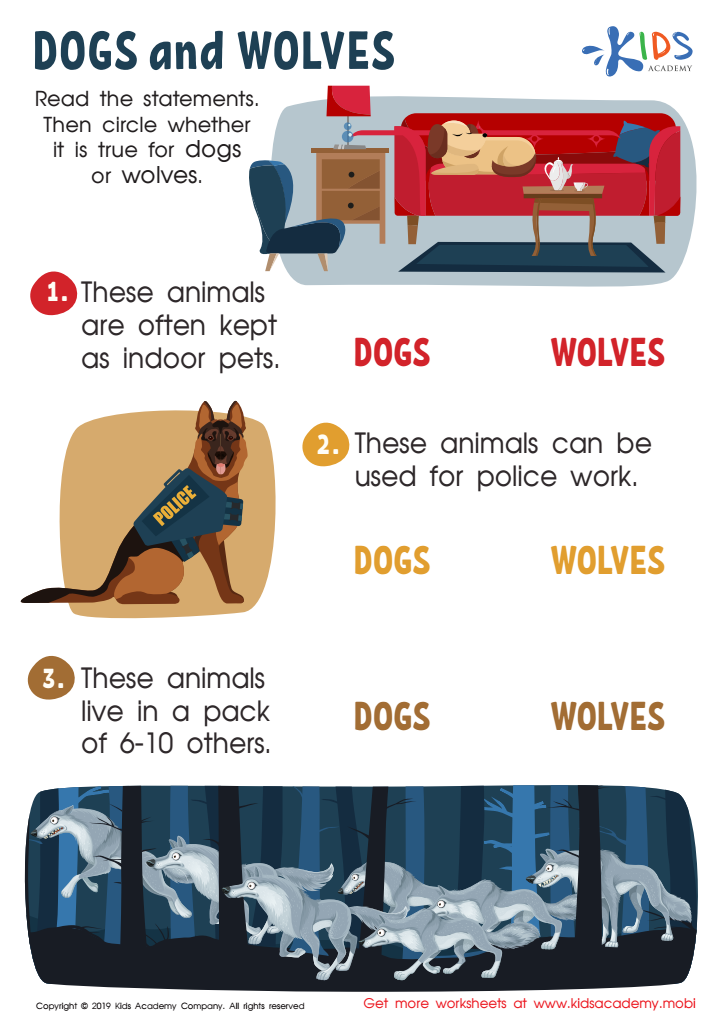

Dogs and Wolves Worksheet
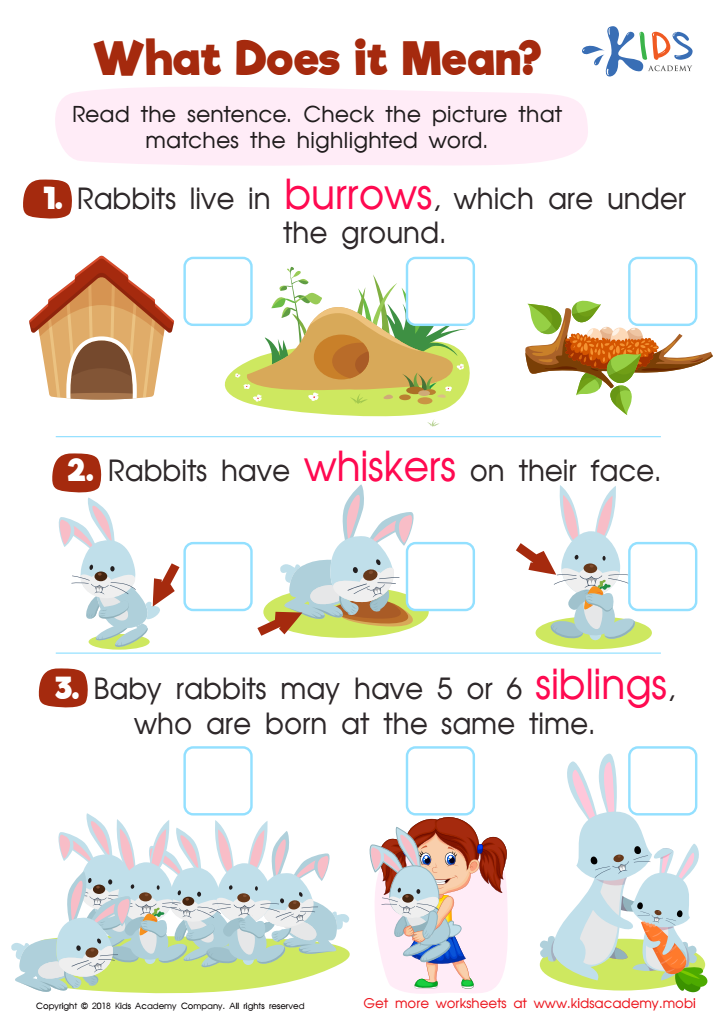

What Does It Mean? Worksheet
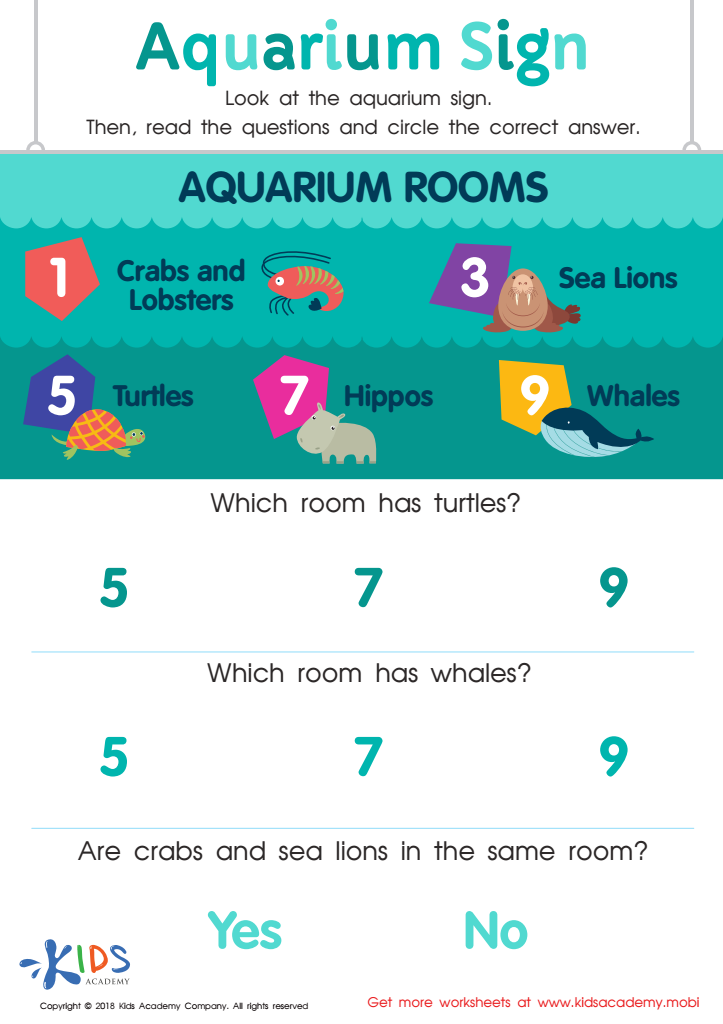

Assessment: Aquarium Sign Worksheet
Critical thinking and vocabulary building are essential skills for children aged 7-8, laying the groundwork for their academic and social success. At this developmental stage, children are naturally curious and eager to explore ideas. Encouraging critical thinking nurtures their ability to analyze information, evaluate arguments, and make reasoned decisions. This cognitive skill helps them navigate the complexities of schoolwork and everyday life, fostering independence and problem-solving abilities.
Building vocabulary during these formative years enhances literacy skills, enabling children to express themselves clearly and comprehend varied texts. A robust vocabulary boosts reading comprehension, essential for academic achievement across subjects, not just language arts. When children articulate their thoughts and questions effectively, they engage more deeply in discussions, enhancing learning through collaboration.
Moreover, parents and teachers play a pivotal role in modeling and supporting these skills. Engaging activities such as open-ended questions, discussions about books, and creative storytelling stimulate critical thinking and vocabulary expansion. By fostering an environment that prioritizes these skills, adults can empower children to become confident, inquisitive individuals prepared to face challenges in their education and beyond. In a rapidly changing world, the ability to think critically and communicate effectively is more important than ever.

 Assign to My Students
Assign to My Students












